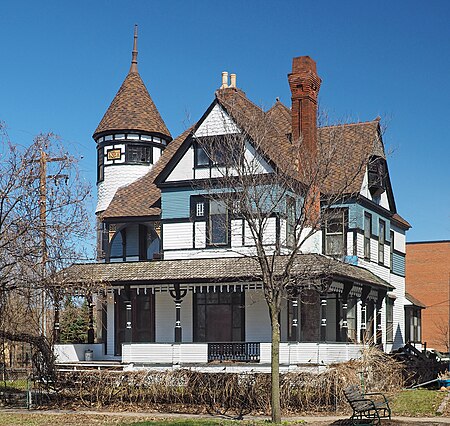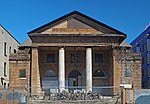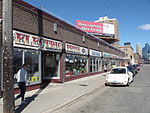Harry F. Legg House
1887 establishments in MinnesotaHouses completed in 1887Houses in MinneapolisHouses on the National Register of Historic Places in MinnesotaMinnesota Registered Historic Place stubs ... and 2 more
National Register of Historic Places in MinneapolisQueen Anne architecture in Minnesota

The Harry F. Legg House is a house in the Elliot Park neighborhood of Minneapolis, Minnesota, United States. The house appears to have been built by a tract housing developer, and its style reflects that of houses for middle to upper-class professional families in the late 18th century. The house retains its Queen Anne architectural integrity, having been altered little since it was originally built. The interior woodwork may have come from "made to order" catalogs that were circulating around that time. The house is listed on the National Register of Historic Places.
Excerpt from the Wikipedia article Harry F. Legg House (License: CC BY-SA 3.0, Authors, Images).Harry F. Legg House
East 16th Street, Minneapolis Phillips
Geographical coordinates (GPS) Address Nearby Places Show on map
Geographical coordinates (GPS)
| Latitude | Longitude |
|---|---|
| N 44.966944444444 ° | E -93.264444444444 ° |
Address
Alliance Apartments
East 16th Street
55404 Minneapolis, Phillips
Minnesota, United States
Open on Google Maps









